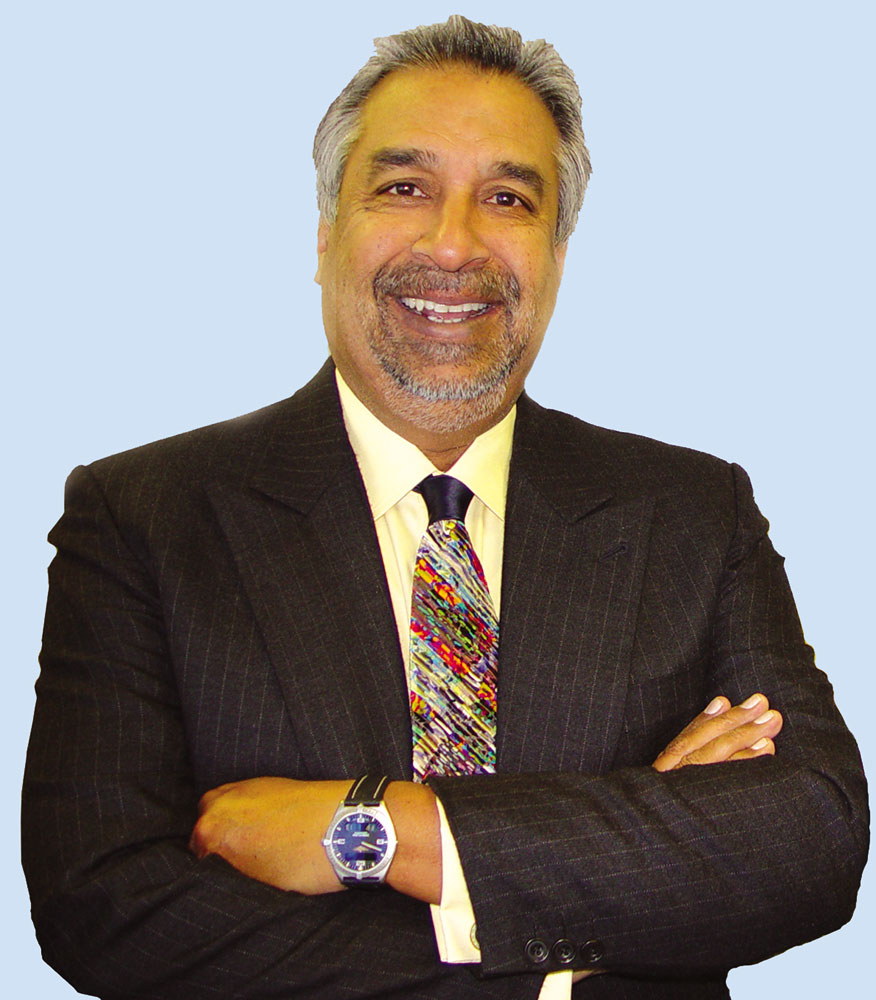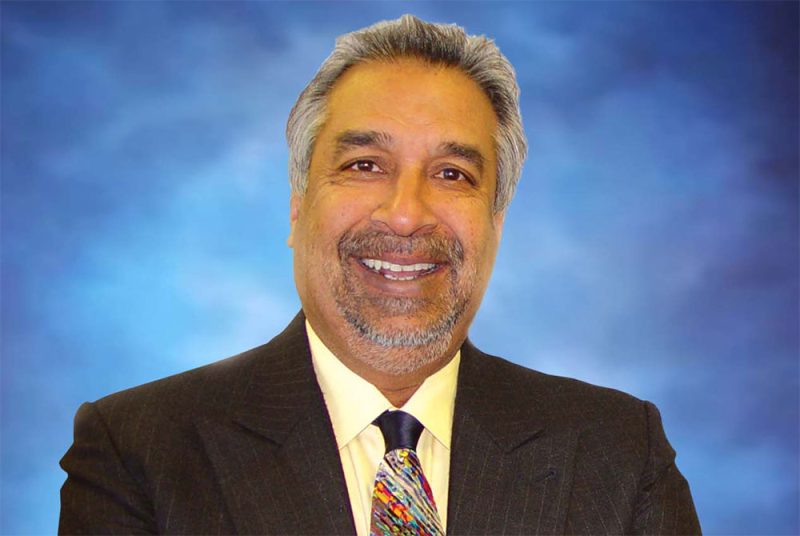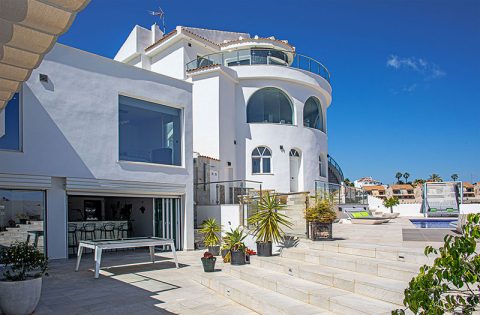By his own admission, Vinod Gupta has no talent apart from founding and running businesses successfully. The serial entrepreneur got his feet wet in the business world in 1972 founding infoGROUP with just $100 in his pocket. By the time he left the company in 2011, the company’s revenues were in the hundreds of millions and Gupta had a bit more cash in his pocket.
Despite leaving infoGROUP in 2011, Gupta could not leave the business world behind. He has continued founding, buying and running companies. Today, Gupta runs Infofree.com, a company that enables salespeople and businesses to find sales leads, and grow their sales.
While Gupta has made a name for himself in business, the serial entrepreneur has also become famous for his philanthropic work. Gupta has donated millions of dollars to charities and founded schools in his home village in India, and his beloved IIT – Kharagpur.
Vinod, you have lived an incredible life both in business and in your personal affairs. First off, you were born in India, but went to Nebraska University. What led you to the United States and what was the transition of living in middle America like?
First of all, in the 1960s when I was in India going to college, India did not have many job opportunities. Plus, there were all kinds of social problems, a shortage of food, and everything. So, when I was going to college, it was like, let’s get out of here and go to America – that is the Land of Opportunity. Luckily, I was able to get a scholarship to go to the University of Nebraska. So, that is what I would call good luck. Once I came to the Midwest, the transition was there because of the different culture and customs, but what was in my favor was I knew the English language. The transition was much easier and, in the Midwest, people are very friendly, so I never really felt like I was in a foreign land. I lived in a dorm and made a lot of American friends. I went to their homes, so it was terrific.
You became CEO of infoGROUP in 1972 and held the position until 1997. How did your career with the company begin? What was it like to be CEO of a thriving company from the early 1970s through the 1980s and into late 1990s? Business must have made some incredible strides during those decades.
I hardly call myself a CEO. I was the founder of the company and I started the company in 1972 with $100. Basically, I would tell people I was the founder and I run the company. infoGROUP grew gradually and by 1993, we made about $44 million in revenue and $14 million in profits. Then, we went public in 1993 and I ran the company until 2011 when we sold the company. I was associated with infoGROUP from 1972 to 2011. So, roughly 39 years and it was fun, you take a company from zero to what I call a decent sized company. When I left, it was doing $760 million in revenue. It was a good ride, a fun ride to take it from zero to that level. There were 7,000 employees all over the world – even in England, Singapore, and Australia. We had a major international presence too. I call it, being high on drugs without being on drugs.
Gupta founded Infofree.com in 2011 as a way to help businesses grow. The company sells leads to small businesses and salespeople, enabling them to generate more clients. Infofree.com takes care of one of the biggest issues many small businesses experience, which is generating new customers to keep bringing in revenue.
Today, you are the Founder of Infofree.com. Can you tell us about Infofree.com and the services it offers to customers?
What Infofree.com does is it helps small businesses and salespeople in finding leads to grow their business. What I find is a lot of small businesses don’t spend a lot of time generating new customers. They will talk about new products and new technology, but they don’t spend much time in finding new customers. In the same way, a lot of sales people are pretty inefficient in finding new customers or getting the right leads. So, we are saying, for $99 a month, you can get any kind of leads you want. If you are selling to rich homeowners, fine, you can get those leads. If you are selling to small businesses, to restaurants, to people who are 65, you can select our database anyway you want to reach the right leads. It will make you more efficient. It is about educating businesses and sales persons on how to spend more time getting new leads and increasing your customer base.
After so much success in the business and political worlds, what drives you to run companies in 2021?
I don’t know anything else! I have no other talent. Basically, to me, running a business, like Warren Buffet who is a good friend, it is all he knows. He knows how to run a business and it is what he likes to do. It’s the same, it is what I like to do.
Gupta has come a long way in life. From a small village in India to being a multi-millionaire in the United States, he has accomplished a lot in 74 years. Today, Gupta is a regular financial donor to causes around the world. In his home village in India, Gupta has funded a high school and nursing school, enabling tomorrow’s leaders to get high-quality education and top-notch facilities. The schools are churning out individuals each year eager to be the next Vinod Gupta.

Fortune Magazine wrote an article on you in 1995 and stated you “grew up with no electricity, no roads, no toilets, no TVs, no cars.” Today, you are a multi-millionaire thanks to your business acumen. What is it like to look back on those days growing up? Is it easy to forget how far you have come in life?
No, it isn’t easy to forget. Actually, I still go to my village and they have made a lot of improvements. I still go there once a year and I set up a high school there and a nursing school there in my village. I would say, I have invested over $30 million in the last 20 years. I took Bill Clinton to my village in 2001. It is now becoming a famous village with these great schools. They have incredible infrastructure with great bathrooms, classrooms, and labs. The nursing school graduates around 60 girls a year and they all get great jobs. The high school has about 1,400 students and is one of the best high schools in the area. And I support that with about $1 million a year. To me, giving education to about 1,800 to 2,000 kids in my village is very, very satisfying.
Philanthropy is near and dear to your heart. According to reports, you have donated over $50 million to charities and funds around the world. What drives you to donate and help others? What are some of the charities you have worked with over the years?
I would say that is where I had a great influence from Warren Buffett and Bill Clinton. Because, people like that and Bill Gates, have created a huge amount of wealth, but they just don’t keep it or pass it on to their heirs. That is also what makes America great. If you take the history of America, people here have created wealth and they have donated for all sorts of causes. Whether it was Carnegie for his library or people have built hospitals or schools – some of the finest universities are private universities. You have all of these private universities that are the best in the world. Money was given and wealthy people have supported them. I think that had a lot of influence on my thinking that we need to do something for society. Whether it is my village or my school or my college, we cannot take it with us. So, it is better to do something for society. The other thing is it is society that made us rich and we took money from it, so we have to give it back. I think that is what makes this country so great.
I would be remiss to mention your relationship with former United States President Bill Clinton. How did you meet President Clinton and what fostered your relationship? Clinton even mentioned you in his book, Giving.
In 1994, I got a call from a local congressman in Omaha that the Democratic Party was having dinner with certain donors in Washington D.C. and would be hosted by the president and I would get to talk with him. So, I said, I would go. I spent two or three hours at dinner sitting across from President Clinton. I talked to him and teased him that on one hand, America believes in democracy and supports democratic countries but has not been friendly to India. The US Presidents had gone to communist countries like China, but not to India. We began discussing this and that is how our friendship began. We met again later on and Clinton wanted me to go to Bermuda as Counsel General and then Fiji as an ambassador. But it is a lot of bureaucracy and I was running a company at the time, so I declined.
Although Gupta is 74-years old, he doesn’t appear to be slowing down. According to the businessman, retirement isn’t a word in his vocabulary. Gupta’s father was a doctor and practiced medicine up to his death at the age of 95. He plans to follow in his father’s footsteps of working as long as possible.
Vinod, with so much success in business, what is your advice to entrepreneurs these days? Is it easier or more difficult to become a successful entrepreneur in 2021 than in 1972?
I would say much easier because the economy is much bigger. The technological advancements have been terrific. There are a lot more opportunities for owners of small businesses. There are more opportunities for entrepreneurs to be successful. You can just see Elon Musk, Jeff Bezos, Mark Zuckerberg, Sergey Brin, and all of these people; they have created huge enterprises.
Do you think you will ever retire from the business world or is it too difficult to give it up after so many years working as a CEO?
I don’t know. I don’t believe in retirement! It isn’t a word in my vocabulary. I enjoy running businesses or investing in businesses or buying businesses. I guess it’s in my blood. I just love it. My dad was 95 and was a doctor. He worked until the day he died. He would always say, never retire, retirement is overstated. Just keep on working that will keep you active and engaged.
Vinod, what is a day in your life like?
Every day is basically a good day. I wake and I feel like it’s a new life. I thank God that I woke up.
What is something most people don’t know about you?
Maybe, they don’t know about the philanthropic aspect or my work in my village in India.
Can you share two of your favorite quotes with us?
I would say one is by Gandhi. He said, about customers, “We are here for the customers. We aren’t doing the customer a favor; they are doing us a favor by being our customer.” I thought that was a great quote by Gandhi because he was a lawyer in South Africa and understood the value of the client. When I saw that quote in somebody’s office, I asked, “Are you sure that is a quote by Gandhi?” To me that is a great quote. The other quote I would say is, it really touches the heart of JFK and is from his inaugural speech. It is, “Ask not what your country can do for you, but what you can do for your country.” I would say those two are pretty memorable quotes.
Finally, if you had the power to change something in the past, what would it be?
Oh, a lot of things I would change. Maybe spend more time with the family. I think in business, you become so engaged that you don’t spend enough time with the family. Really to spend more time with the kids.
Gupta’s businesses continue to do great things, but he is more than just a serial entrepreneur. Of course, he is a businessman first, but also a philanthropist seeking to help others. By dedicating himself to his career and pursuing professional interests, Gupta has achieved more than many entrepreneurs. From $100 in 1972 to millions of dollars in 2021, he still hasn’t forgotten about his home village, Rampur Maniharan, which has kept his feet on the ground all these years.
For more information on Vinod Gupta and Infofree, please visit https://www.infofree.com

Journalist and author. Contributor











